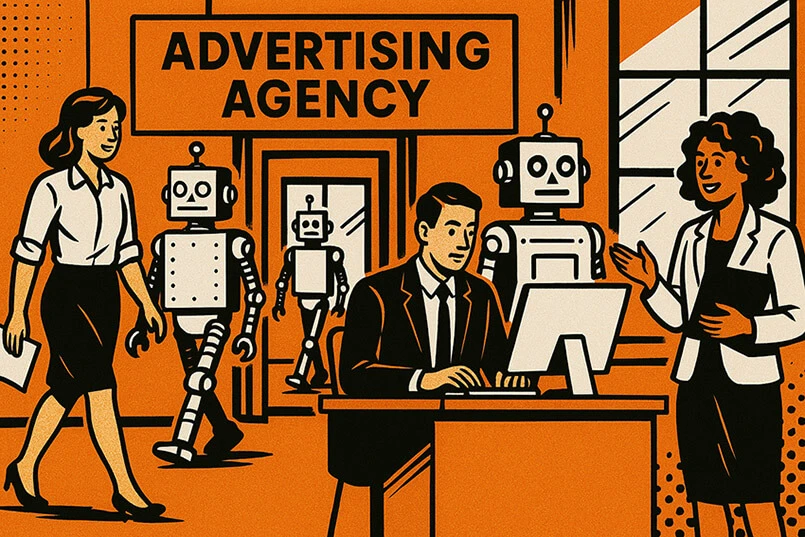The first point I have to make is “Why are you pitching any way?” But the fact is that pitching is happening throughout the industry and across the globe. Not just creative and media but increasingly other disciplines including technology providers, call centres, POS vendors and more.
The diversity, range and depth of marketer requirements is growing and seemingly endless.
But in all this pitching has anyone considered the costs? I am not talking about the emotional and social costs, I mean the hard financial costs of the pitch process.
Clearly the advertising agencies have thought about their costs with industry bodies representing them regularly calling on advertisers to pay pitch fees. In some markets pitch fees are standard with the advertiser paying fees to the agencies for their participation in the pitch process.
But who should be paying for the pitch? The agency? The advertiser? Or both?
The economics of a pitch
When an advertiser invites agencies to tender for their business there are two positions here: the incumbent agency who is pitching to maintain the business and protect their revenue, and the non-incumbent who are participating to gain additional business and revenue.
The cost of the pitch depends on whether you count only the agency’s out-of-pocket or external costs or also include the agency resource costs and the opportunity costs of the lost revenue from those staff members while they are participating in the pitch.
Our calculations on pitch costs indicate that a single market pitch can take several thousand billable hours of agency time and cost hundreds of thousands of dollars in non-recoverable costs.
If the agency wins, they will be looking for ways to recoup this investment in money and time, which could take 6 to 12 months to recover, depending on the remuneration agreement. If the agency loses then they have to write off this cost to their new business budget, which is part of their operational overhead, the same overhead under pressure in negotiations.
On the advertiser side there is also a financial cost, but this is the unseen and usually unaccounted cost of lost productivity as the marketing team is distracted by the pitch process and also the cost of the other stakeholders that may be engaged including legal, procurement and senior management.
Of course there could be hard costs if the advertiser engages a third party to manage the process or if there are other external costs associated with the process. But our calculations on the resources required show that the advertiser time for an equivalent pitch is less than half the time of the agency’s.
But then again for each advertiser calling a pitch, possibly up to six agencies could be invited to participate. Therefore on this basis the number of advertiser hours and therefore costs could be 1/12 that of the agencies participating.
On this basis, who should pay? Lets look at the models currently in play.
Where the agency pays up-front
This is very common and very traditional. Some of the oldest and most established of these models have positioned this as a service to the agencies. The model is that the agency pays a fee to provide their information and to be listed in the hope of being selected for new business opportunities.
The agency participating in this would naturally write off the cost as part of their new business budget, which is recovered in their overhead cost. Therefore this cost is ultimately recovered in the fees paid for by their clients.
But a bigger issue is that what happens if an agency does not want to pay the up-front fee? Increasingly some of the best and most innovative agencies are rejecting this model as they realise that the investment does not necessarily pay a return. But from the perspective of the buyer looking for insights into what is available in the market, you have to acknowledge that the model is flawed.
I find it interesting that often the agencies that you know and have a high profile in the industry, are the ones that pay to be listed on these sources. But the agencies that, perhaps are specialists or are successful through referral and word of mouth, very rarely waste time and money paying to be listed. So while the source may be free, you will only have access to those agencies that have paid the fee.
The other interesting fact is we have occasionally seen advertisers ask agencies to pay up front to be part of the pitch. The excuse often given is that it is to recover the costs of running the pitch or to qualify the agencies’ commitment. Both flawed thinking when you consider the economic model of the pitch and luckily a practice quickly howled down by the industry.
Where the agency pays on success
An alternative model is where the agency gets to participate in the pitch on agreement that they pay a fee when they win new business. This is positioned as a success based model. The viability of the process depends on a regular and significant volume of new business so that the owner of the directory or database can make enough to ensure the sustainability of the model.
This is where transparency becomes an issue. The issue is how much the agency needs to pay for winning the business. After all if there are different rates for different agencies this could incentivise the owner of the database, directory or site to put forward those agencies that are willing to pay higher success fees.
There is also a need to understand how many agencies are actually included in the consideration list as this model works best when agencies perceive this as a reliable source of new business and revenue. After all the actual cost for the agency to participate in a pitch or tender is much higher than these success fees.
Therefore if they are more likely to win business through this source they are also more likely to feel comfortable paying the success fee.
Finally, the issue is that while they offer the service free to advertisers looking for agencies to appoint, the advertiser will end up paying for the service, as the successful agency will want to recover this cost as part of their remuneration.
But it is not just intermediaries that use this approach. There have been examples where advertisers have run pitches where the winning agency must pay a fee on appointment to the advertiser. Like the pay to pitch, when this becomes public there is usually an industry outcry.
While many in the industry see these processes of the agency paying as unfair, in actual fact it is simply flawed economics. When the agency pays the fact is that the money for this comes from their revenue, which is ultimately paid by the advertiser. It is effectively robbing Peter to pay Paul.
Or where only the advertiser pays
Of course there are models where both the agency and the advertiser pays, but in actual fact it is always the advertiser who pays. The question for most advertisers is how transparent do you want this transaction to be?
We have also shared in the past our advice on the payment of pitch fees to agencies by the advertiser and when and how these should apply, especially in regards to intellectual property.
But ultimately we have always believed in the Golden Rule when it comes to marketing and procurement and that is the man with the gold makes the rules. But you would have to question the logic of the man with the gold when he makes rules that rob the prospective supplier at the start of the relationship and yet doesn’t expect that supplier to find other ways of recovering it.
The fact is that accepting that the advertiser will ultimately pay one way or another means you can then focus on a model that produces the best possible outcome at the right price to deliver great value.
Trying to have the supplier pay or share in some of the costs will either corrupt the process or ultimately result in the advertiser paying for it in overcharging for other services or under delivering in quality and value.
The choice is yours
When I started TrinityP3 in 2000 I looked at all of these models and decided that the best approach was for us to be completely transparent on the costs and the outcomes to be delivered and to guarantee those outcomes.
Perhaps if advertisers were not so quick to try and hide the true financial cost of the pitch process, by encouraging models that have the agencies pay, and then assessed the true cost of pitch against the value of the outcome, then you would hope there would be less time wasting and less poor outcomes from pitches.
Yes, perhaps there would be less pitches and that is a good thing.
But as always it is up to the buyer, the advertiser, to make that call because the Golden Rule applies as always.
TrinityP3’s comprehensive Search & Selection process provides extensive market knowledge, tightly defined process and detailed evaluation and assessment, to help you find the right agency supplier.
Why do you need this service? Learn more here




